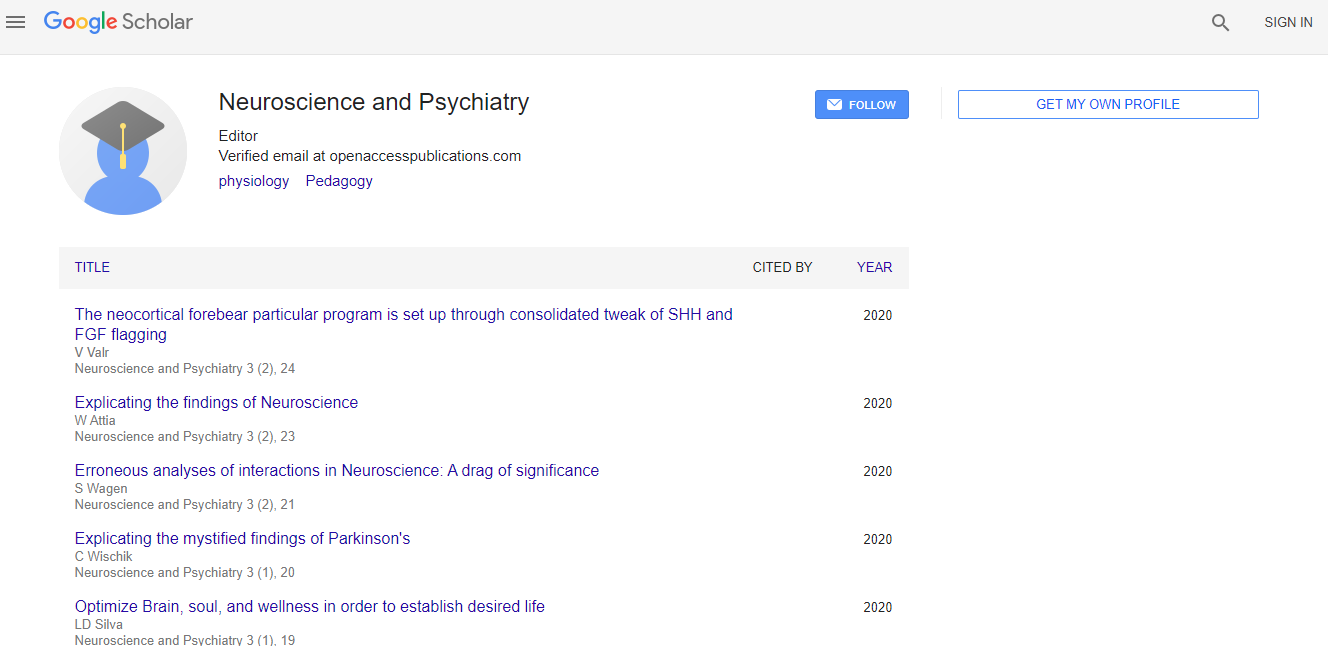Our Group organises 3000+ Global Conferenceseries Events every year across USA, Europe & Asia with support from 1000 more scientific Societies and Publishes 700+ Open Access Journals which contains over 50000 eminent personalities, reputed scientists as editorial board members.
Open Access Journals gaining more Readers and Citations
700 Journals and 15,000,000 Readers Each Journal is getting 25,000+ Readers
Mark Austin

Mark Austin
Department of Molecular Neuroscience
Idaho State University
USA
Biography
Mark Austin is currently Professor Molecular Neuroscience Idaho State University, USA. He completed B.S. Biology, Pennsylvania State University, University Park, PA, Ph.D. Pharmacology, Washington State University, Pullman, WA and Postdoctoral fellow, Molecular and behavioral neuroscience, National Institute of Mental Health, Bethesda, MD. Dr. Austin joined the Biological Sciences department in 2012. His research interests have primarily focused on examining the molecular basis of the pathophysiology of major depressive illness and stress responses. Much of this research has focused on the serotonin system and associated sex differences, epigenetic mechanisms, molecular links associated with co-morbidity of obesity and diabetes with depressive illness, neurodevelopmental consequences of early life stress and the molecular basis for the structural brain abnormalities in depression and mild traumatic brain injury. His research program utilizes multiple models, including rodent stress models, transgenic mice and in vitro cell culture as well as a variety of molecular tools including DNA microarray expression profiling, qPCR, immunoblot and immunofluorescence histochemistry. Our aims are to provide a multi-disciplinary approach to understanding the neurobiology of major depressive disorder and the neurodevelopmental consequences of early life perturbations on the synaptic plasticity and functional integrity of the central nervous system.
Research Interest
Molecular basis of the pathophysiology of major depressive illness and stress responses.

 Spanish
Spanish  Chinese
Chinese  Russian
Russian  German
German  French
French  Japanese
Japanese  Portuguese
Portuguese  Hindi
Hindi 